
Public Health, Medicine and Poverty
How has housing policy contributed to the disproportionate and extreme housing cost burdens of people and families of color?


Register
Course Information
- Audience: Public Health Professionals
- Format: Recorded Webinar
- Date/Time: Thursday, December 10th 2020 4:30 PM – 6 PM EST.
- Price: Free
- Length: 1.5 hours
- Credential(s) eligible for contact hours: Sponsored by New England Public Health Training Center (NEPHTC), a designated provider of continuing education contact hours (CECH) in health education by the National Commission for Health Education Credentialing, Inc. This program is designated for Certified Health Education Specialists (CHES) and/or Master Certified Health Education Specialists (MCHES) to receive up to 1 total Category I continuing education contact hours. Maximum advanced-level continuing education contact hours are 1. Provider ID: 1131137 Event ID: SS1131137_PHMP.
If you are not seeking a CHES/MCHES contact hours, if you complete the post-test and evaluation, you will receive a Certificate of Completion. The Certificate will include the length of the course.
- Competencies: Health Equity Skills
- Learning Level: Awareness
- Companion Trainings: None
- Supplemental materials:Noe
- Pre-requisites: None
About this Recording
Poverty poses a serious threat to the health of the public, as those living in poverty are less likely to be able to access the conditions that promote health. Panelists will discuss the intersections of health, medicine, and poverty, and how addressing the social factors that create health can lead to greater health for all.
What you'll learn
At the end of the recording, participants will be able to:
- Describe the role of housing instability in health of individuals and of populations
- List at least 3 risk factors for poor health outcomes that are associated with poverty
- Describe the interrelationship among Medicaid, race, and poverty
- Discuss the role of power as a social determinant of health and how it can be used to create change
Moderator

Natalia Linos
Executive Director, FXB Center at Harvard University
Subject Matter Experts

Soni Gupta
Director of Neighborhoods and Housing

Jamila Michener
Associate Professor, Cornell
University
Phillomin Laptiste
Executive Director, Beth Israel Deaconess Medical Center

Herminia Palacio
President and CEO, Guttmacher
Institute
Michael Stein
Professor, Boston University School of Public Health
Registration
Select the Enroll Me button below to register for this recording. If you have any trouble accessing the recording, contact support@nephtc.org.
Acknowledgement: This project is/was supported by the Health Resources and Services Administration (HRSA) of the U.S. Department of Health and Human Services (HHS) under grant number UB6HP31685 “Regional Public Health Training Center Program.” This information or content and conclusions are those of the author and should not be construed as the official position or policy of, nor should any endorsements be inferred by HRSA, HHS or the U.S. Government.

Supporting Infant Feeding Goals in the First 4 Weeks
Do you ever feel conflicted about how to best support families' feeding goals when you also have concerns about infant weight gain?
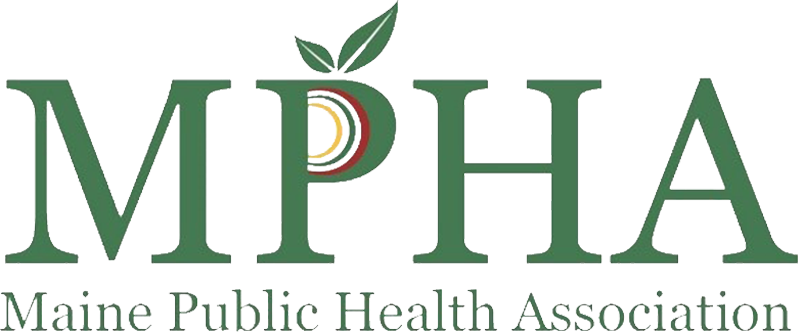
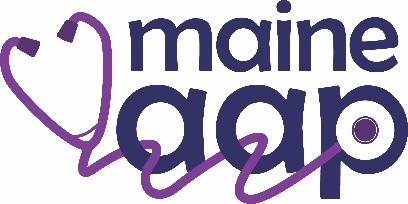
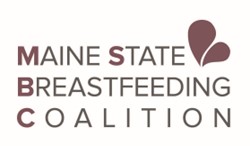
Course Information
- Audience: All public health professionals working in nonprofits, healthcare, educational institutions, government and private sector
- Format: Webinar
- Date/Time: Thursday, November 14th, 12:00 PM – 1:00 PM ET
- Price: Free
- Length: 1 hour
- Credential(s) eligible for contact hours: Sponsored by New England Public Health Training Center (NEPHTC), a designated provider of continuing education contact hours (CECH) in health education by the National Commission for Health Education Credentialing, Inc. This program is designated for Certified Health Education Specialists (CHES) and/or Master Certified Health Education Specialists (MCHES) to receive up to 1 total Category I continuing education contact hours. Maximum advanced-level continuing education contact hours are 1. Provider ID: 1131137 Event ID:PM1131137_CIMPART1.
If you are not seeking a CHES/MCHES contact hours, if you complete the evaluations, you will receive a Certificate of Completion. The Certificate will include the length of the course. - Competencies: Communication Skills,
Health Equity Skills,
Community Partnership Skills - Learning Level: Awareness
- Companion Trainings: None
- Supplemental materials:PowerPoint and follow-up email with any links mentioned during presentation.
- Pre-requisites: None
- Technical Requirements: This webinar is hosted on the Zoom platform. Please refer to the Zoom System Specifications to ensure your system meets the minimum requirements for connecting.
About this Webinar
What you'll learn
At the end of the recording, participants will be able to:
- Review reasons why exclusive human milk feeding is recommended and its connection to obesity prevention.
- Discuss appropriate weight loss and identify 3 tools for addressing higher than average weight loss for the exclusively breastfed baby in the first 4 weeks.
- Understand when to recommend pumping and/or supplementing in the first 4 weeks of the infant’s life
- Identify new parent and professional resources for breast/chestfeeding information and support
Subject Matter Experts
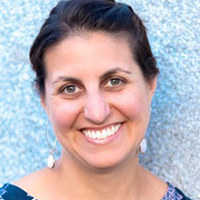
Kara Kaikini

Paula Norcott
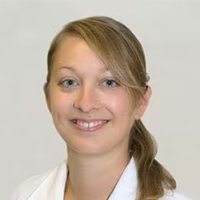
Dr. Kelsey Walton
Kara Kaikini is the Executive Director of the Maine State Breastfeeding Coalition. She has been an International Board Certified Lactation Consultant since 2009 and has supported new families for over 20 years as a home visitor, postpartum doula, lactation consultant, childbirth education and lactation services program manager, prenatal educator, and postpartum group facilitator. She was the Lactation Specialist for Maine CDC's Maternal Child Health Program/Perinatal Outreach & Education Consultant Program from 2016 - 2022 and is a member of the Perinatal Quality Collaborative of Maine (PQC4ME) Steering Committee. Kara is passionate about reducing barriers preventing families from meeting their infant feeding and maternal mental health goals through education, support, connection, and advocacy. Kara lives in Freeport with her husband and two energetic boys and also serves on the RSU5 School Board.
Paula Norcott is the co-owner of Maine Mother and Company, a perinatal resource center in Brunswick, Maine. She is also the Breastfeeding Educator with Maine's Perinatal Outreach and Education Consultation Services. Paula is a lactation consultant with over 23 years of experience serving feeding parents. She got her start in this work as a peer counselor for WIC in Plymouth, Massachusetts in 1999. She worked in a fast-paced hospital setting for 5+ years. Paula currently works in private practice, in the infant feeding tech world and consults for both the state as well as a well-known pump company. Frustrated by how nipple pain is brushed off and how slow infant weight gain is blamed on feeding parents, Paula has made it her mission to help these families feel confident in their plan and their ability to feed their tiny humans with a mental health first approach. When not helping other families, Paula can be found at home, with her husband and at least a few of her five children, likely drinking GOOD chai, knitting and obsessing about when the next Percy Jackson episode will be released.
Dr. Kelsey Walton is a primary care pediatrician at Kennebec Pediatrics in Augusta, ME. Prior to transitioning to primary care almost two years ago, she practiced as a pediatric hospitalist for 9 years at Maine General Medical Center. Kelsey is a mom to two boys ages 3 and 5 years. They love camping and spending time outdoors. Kelsey enjoys gardening, beekeeping, and reading.
Registration
Select the Enroll Me button below to register for this recording. If you have any trouble accessing the recording, contact support@nephtc.org.
Acknowledgement: This project is supported by the Health Resources and Services Administration (HRSA) of the U.S. Deparment of Health and Human Services (HHS) as part of award 2 UB6HP31685‐05‐00 “Public Health Training Centers.” The contents are those of the author(s) and do not necessarily represent the official views of, nor an endorsement, by HRSA, HHS or the U.S. Government.

Tackling a City’s Greatest Public Health Challenges through a “Health in All Policies” Strategy
How do you create public health innovation by working across sectors?


Register
Course Information
- Audience: Public health professionals, State and local health departments
- Format: Webinar
- Date/Time: September 26, 2019
12 PM - 1 PM EST - Price: Free
- Length: 1 hour
- Credential(s) eligible for contact hours: Certificate of completion
- Competencies: Policy Development and Program Planning Skills
- Learning Level: Awareness
- Companion Trainings: None
- Supplemental materials: Session PowerPoint
- Pre-requisites: None
About this webinar
This webinar will highlight the City of Providence, Rhode Island’s efforts to integrate health into public policies across sectors. Examples will include working in collaboration with Providence public schools to address chronic absenteeism, working with fire stations and first responders to mitigate harms from opiate dependence, and working with the public works department.
What you'll learn
At the end of the course, participants will be able to:
- Understand innovative strategies to work across sectors to address public health problems with innovative public sector partnerships.
- To gain new understanding of novel strategies to mitigate the public health harms of opiate dependence by training firefighters and first responders in recovery coaching.
- To understand how to reduce chronic absenteeism by working with public works departments to enhance snow removal in winter months.
- To understand how to reduce chronic absenteeism by providing menstrual hygiene products in public schools.
Subject Matter Expert
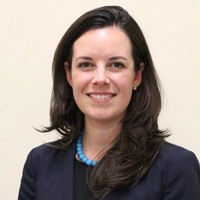
Ellen Cynar
Director of City Providence Healthy Communities Office
Ellen Cynar is the Healthy Communities Office Director for the City of Providence. She joined the office in January 2013. Ms. Cynar has worked in a wide variety of public and private settings as well as health education and promotion positions. Her public health interests include nutrition and food policy.
Ms. Cynar directs the City’s efforts on substance abuse prevention, and promotion of healthy eating, active living, and mental health initiatives. In this role, she provides leadership and advises on health and prevention issues, environmental policy changes, and public education efforts.
Ms. Cynar received a MS in Nutrition and Food Policy from Tufts University’s Friedman School of Nutrition, a MPH in Global Health from Tufts University’s School of Medicine, and a BS in International Affairs from Lewis and Clark College. She lives in Providence, RI with her husband and two children.
Registration and Contact Hours
Select the Enroll button below to register for this webinar. If you have any trouble accessing the webinar, contact trainingmanager@nephtc.org.
The Certificate of Completion will include the length of the webinar. Generally 50 – 60 minutes is equivalent to 1 contact hour. Contact hours may be applicable towards continuing education requirements for certain credentials. Check with your credentialing body to verify if the topic meets its continuing education requirements.

The Link between Health, Wealth, and Equity: The Economic Impacts of COVID-19 on the People of NH and VT
When we think about individual economic shortcomings in the United States, there can be a tendency to create a narrative focused on an individual issue. What structural and community type concepts can be applied to economic inequality?




Register
Course Information
- Audience: Public health workforce
- Format: Webinar
- Date/Time: 17th November 2020, 9:00 am-10:30 am ET
- Price: Free
- Length: 50 min
- Credential(s) eligible for contact hours: Sponsored by New England Public Health Training Center (NEPHTC), a designated provider of continuing education contact hours (CECH) in health education by the National Commission for Health Education Credentialing, Inc. This program is designated for Certified Health Education Specialists (CHES) and/or Master Certified Health Education Specialists (MCHES) to receive up to 1 total Category I continuing education contact hours. Maximum advanced-level continuing education contact hours are 1. Provider ID: 1131137 Event ID: SS1131137_LBHWE.
If you are not seeking a CHES/MCHES contact hours, if you complete the evaluation, you will receive a Certificate of Completion. The Certificate will include the length of the course. - Competencies: Policy Development and Program Planning Skills
- Learning Level: Awareness
- Companion Trainings: Food and Housing Insecurity in the Wake of COVID-19: Old Problems, New Opportunities?
Health Haves, Health Nots in a Time of COVID-19 - Supplemental materials:None
- Pre-requisites: None
About this Recording
Jessica Santos, Ph.D, esteemed lecturer at Heller School for Social Policy & Management at Brandeis University, analyzes the role of policy in how our economy structures health, wealth, jobs, and equity. Santos suggests a need for significant intervention, structuring equity into the future.
Jessica Santos walks the listener through the state of wealth and equity in the United States, while acknowledging the realities of racial and economic divides and urging the listener to consider how to structure equity into the future of economic policy.
What you'll learn
At the end of the recording, participants will be able to:
- Recognize the exponential economic impacts of COVID-19 on New Hampshire, Vermont, and the United States
- Make connections between underlying social, racial, and economic divides; and recognize the consequences of these divides
- Conclude that significant intervention is needed in economic patterns to structure exponential equity
- Consider how to craft economic policy in Vermont and New Hampshire while prioritizing racial equity
Subject Matter Expert
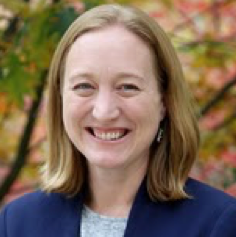
Jessica Santos, Ph.D
Lecturer at Heller School for Social Policy & Management, Brandeis University. Principal Investigator on multiple federally and privately funded mixed methods studies focused on examining pathways for economic stability, upward mobility, and equity through social policy.
Registration
Select the Enroll Me button below to register for this recording. If you have any trouble accessing the recording, contact support@nephtc.org.
Acknowledgement: This project is/was supported by the Health Resources and Services Administration (HRSA) of the U.S. Department of Health and Human Services (HHS) under grant number UB6HP31685 “Regional Public Health Training Center Program.” This information or content and conclusions are those of the author and should not be construed as the official position or policy of, nor should any endorsements be inferred by HRSA, HHS or the U.S. Government.




